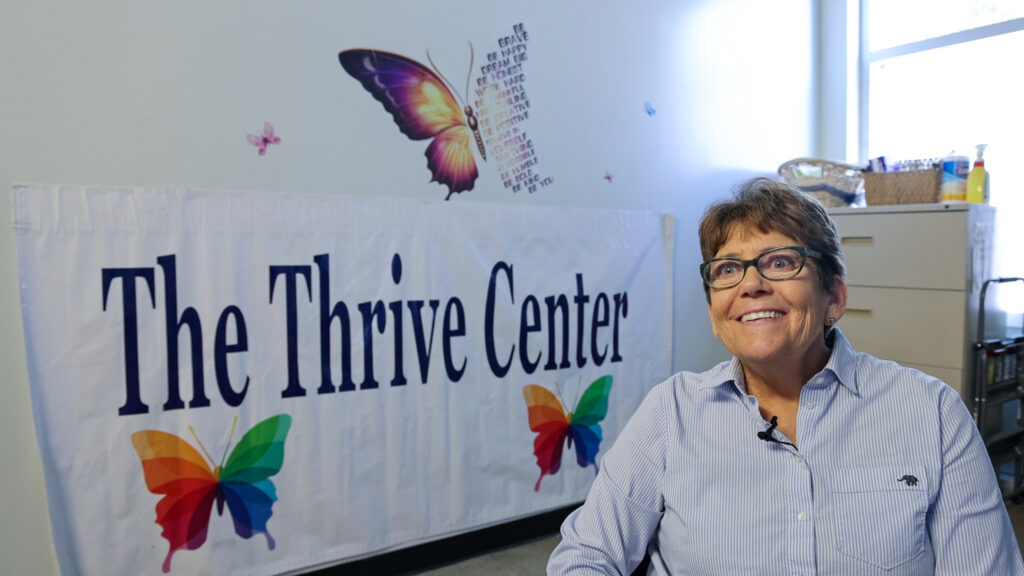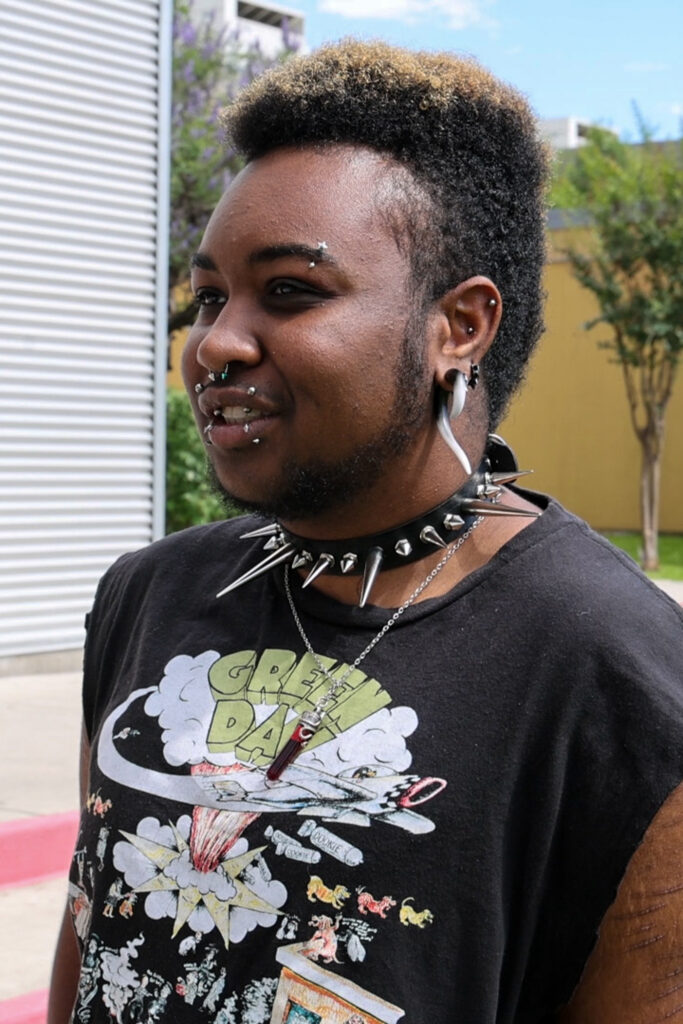Sandra Whitley believes that homelessness among LGBTQ youth is on the rise because queer people are coming out at a younger age, leading many of them to get kicked out of their homes before they turn 18.
Many of them turn to Thrive Youth Center, San Antonio’s LGBTQ homeless shelter located within the sprawling Haven for Hope campus and a San Antonio Area Foundation 2020-2023 grantee. The Area Foundation wanted to recognize Thrive and its work in observation of Pride Month in San Antonio.
Whitley, 61, Thrive’s founder and executive director, feels that safeguarding queer young people is just as important now as it was decades ago because anti-gay and anti-queer sentiment “is becoming hostile again.”

Whitley’s dedication to providing shelter and resources for queer youth is connected to her own adolescence. When she was 13, after her school “caught wind” that she might be a lesbian and tried to kick her out indefinitely, her parents placed her in a mental institution.
“Obviously, I came out a very angry person,” said Whitley. “[I remember] just always feeling afraid and alone, like I couldn’t trust anybody.”
On a mission to help young gay people “not feel so alone,” she began researching the epidemic of homeless LGBTQ youth across the country. She sought mentorship from the Ali Forney Center in New York, an organization that started serving queer youth in a church basement. “They inspired me that I could do it.”
Thrive’s strong suit is its ability to think outside the box when challenging the firewalls queer homeless people face with policies that are biased, dated and inflexible.
For example, LGBTQ homeless youth have historically struggled to get on the residential side at Haven for Hope, which required an ID and other required documents young people living on the street don’t always have. This meant that homeless trans people were relegated to the courtyard, where transwomen where vulnerable to potential physical and sexual assault.
“LGBT youth felt safer sleeping together underneath bridges in San Antonio than coming to the courtyard,” Whitley said, noting that Haven for Hope does a good job serving the homeless community at large.
One of the grants Thrive received from the Area Foundation included an unrestricted one in 2020 meant to help nonprofits stay afloat during the pandemic.
“It was a $6,000 grant, but the impact of that was astronomical,” Whitley said. “We used the grant for cell phones. That allowed [clients] to have a lifeline to the outside world and allowed our case managers to stay in touch with them.”
Thrive has two annual federal grants that allow them to house 45 young adults in their own apartment for one year. But those grants only go so far – the apartments are unfurnished.
“Grants from the Area Foundation allowed us to purchase a bed, kitchen items and bathroom items,” Whitley said. “What the grant from the Area Foundation has done is that we’re able to create, certainly, a better service.”
The Area Foundation proudly supports the work that Thrive does in the community, which is linked to the organization’s mission to close opportunity gaps for those who need it most.
“In the short eight years since their inception, Sandra and her team have created a refuge for LGTBQIA+ homeless youth,” said Stephanie LaFroscia, Director of Grants and Community Engagement at the Area Foundation. “As the only shelter in San Antonio that primarily serves this population, Thrive not only provides a home but an entire community that rallies and uplifts youth to fully reach their goals and enables them to be authentically themselves.”
The Area Foundation’s unrestricted grants allowed Thrive to pay for GED tests, books and the must-have VIA bus passes.
Whitley is concerned that anti-trans legislation causes young queer people to feel socially targeted. “They feel like, ‘Oh, my God, I can’t be who I want to be? What’s going to happen when I’m 18?’”

Elijah Terran Betts, 19-year-old African American transman, remembers his first connection to Thrive.
“Basically, I had known about Thrive since I was 16, so like back in 2020, because my family wasn’t accepting of me being trans, especially my mom. I was only 18 for like 24 hours and I was literally homeless,” he said.
“When you’re queer you have to worry about your safety at all times,” Betts said. “I really didn’t want to be on the streets being Black and queer because that is not gonna be a good situation in downtown San Antonio.”
Betts is thankful that he literally found a welcoming home at Thrive.
“I was just really grateful that there was a trans friendly organization that was there to help me,” he said. “Graduating high school was something that I really wanted to do. I really only had three or four more months left. [Thrive was] able to talk to my counselors.”
Some of the best advice he said he ever received was when Shawn, a former Thrive case worker, once said to him that it was OK if he wasn’t sure of what came next in his life, that he didn’t need to have all the answers.
“That really helped me to try to be in the moment, and to realize that everything happens for a reason,” Betts recalled.
Despite growing backlash in certain societal circles, Whitley remains optimistic that those forces will be drowned out.
“I think we’re in this epidemic of homeless LGBT [people]. But I think kids are more accepting today, so hopefully that won’t be such a problem in 20 years,” she said.
“You can only hope.”
Jade Esteban Estrada is a member of the San Antonio Area Foundation’s Marketing and Communications Storytelling Ambassadors network.


Our hearts are with the Kerrville community following the devastating flooding.
Please consider making a donation to help our neighbors rebuild by clicking here.